There’s a quiet culinary revolution unfolding in Amsterdam led by Chef Bas van Kranen whose commitment to spotlighting Dutch ingredients is making sustainable cooking ever so cool.
BY KISSA CASTAÑEDA
Photos: Flore/ Chantal Arnts
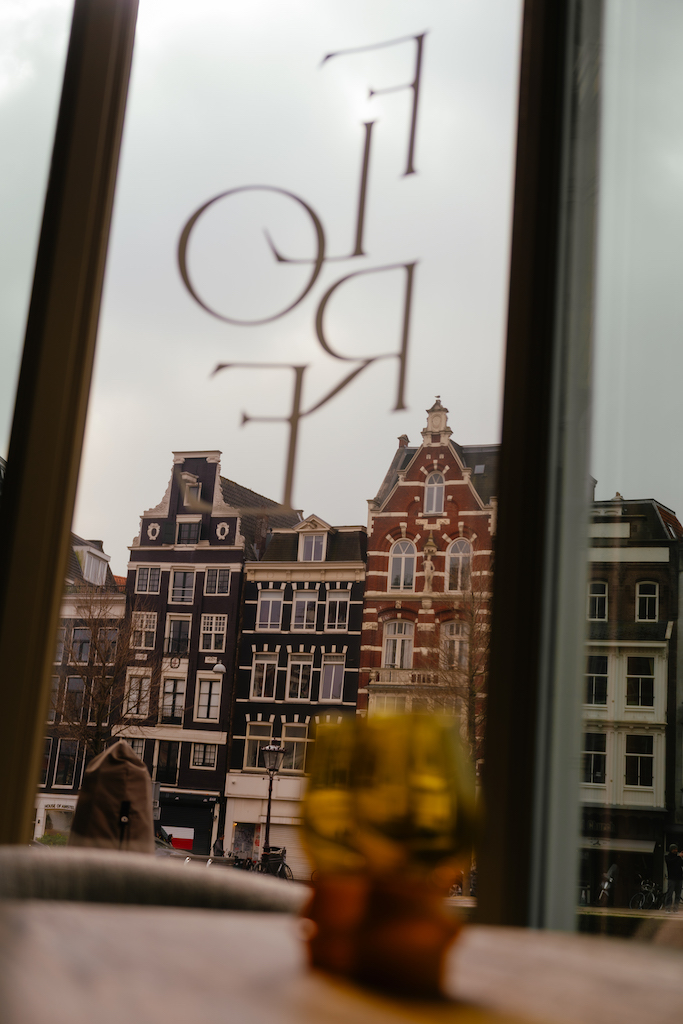
Amsterdam has long attracted travellers to traverse its charming canals, explore its vibrant art scene and dip their toe in its legendary nightlife. It’s often ranked in the top 10 most visited European cities and clocked 8.9 million arrivals in 2024, but few would describe it as a culinary capital.
“The Netherlands was something of a culinary wasteland — we’re a country of boiled potatoes and fried bacon — but that’s been slowly changing this century. In Amsterdam, we don’t shout it from the rooftops, but there’s a remarkable depth that’s emerged ranging from Japanese vegan fine dining to natural wine bars serving three-course menus with a story,” says Arno Kantelberg, editor-in-chief of ModMod Magazine and a creative Amsterdammer who has witnessed the city evolve first-hand.
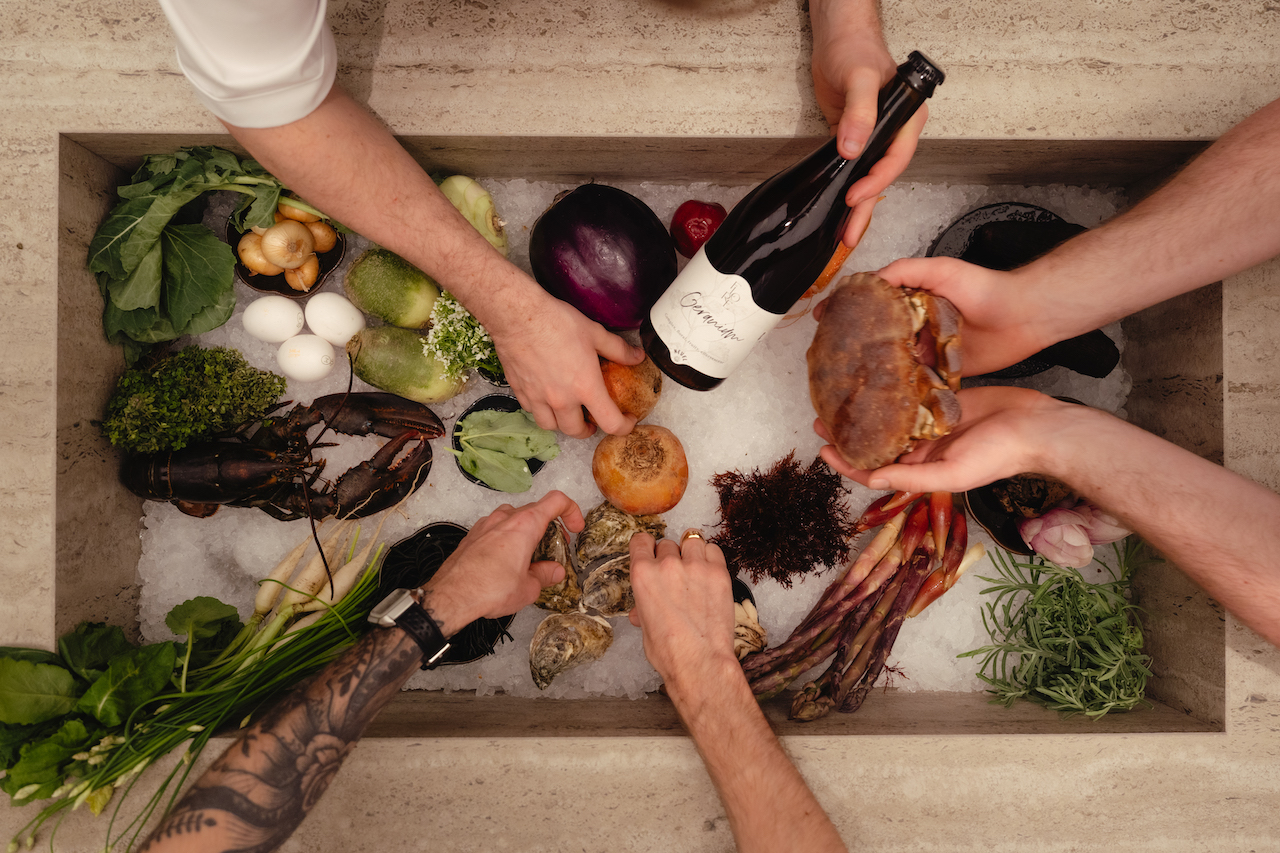
The limelight is firmly fixed on Amsterdam this year as it celebrates its 750th anniversary in 2025. As the city comes alive with milestone events, more travellers are set to discover its progressive culinary scene that goes beyond fresh pints of Heineken and utterly addictive stroopwafels. Shaped by the same innovative thinking that has allowed this low-lying city to thrive — with canals lining 100km of waterways built during the Dutch Golden Age — the organic shift in its food culture is based on a certain level of introspection.
“A decade ago, cooks were busy recreating tastes and dishes from different countries forgetting what our land could offer. For example, ordering Gillardeau oysters from France, tomatoes from Italy or products from South America and Asia,” says Sebastian Baquero Garces, head chef of Restaurant Vermeer, one of Amsterdam’s leading tables. “Local was a word mostly associated with hobby chefs or farmer’s markets, but now it’s the standard among the city’s best chefs,” adds Arno.
The Ground Up
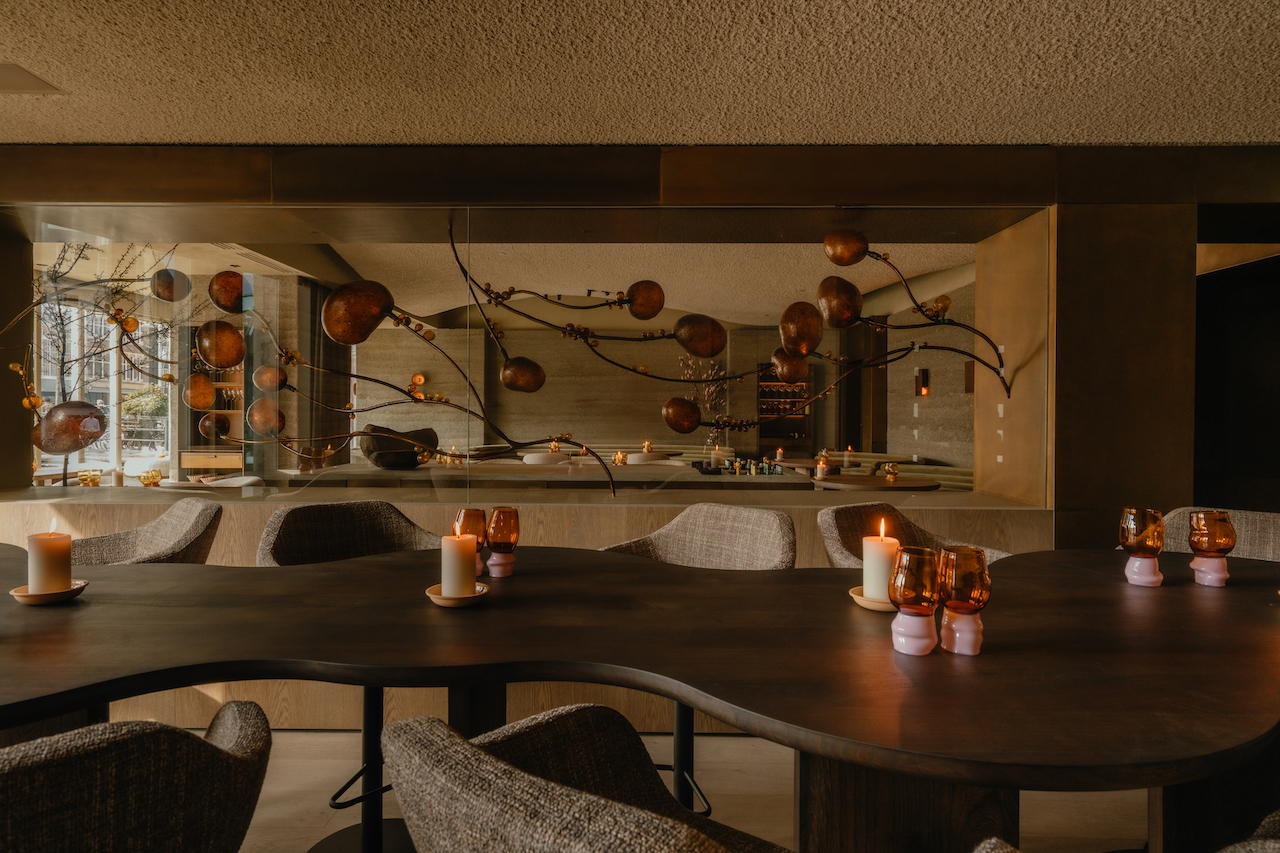
That’s how I found myself holding a pink and ochre bulbous glass that looked more like a sculpture than a water goblet at Restaurant Flore, a conscious fine dining restaurant housed at the iconic hotel De L’Europe. It’s not just any lauded restaurant housed in a luxury hotel — it’s the first in the country to be recognised with two Michelin stars and Green Star at the same time and within eight months of opening.
Boasting gallery-like surroundings — with walls covered in bio-based lime hemp and tables crafted from locally sourced solid oak — the restaurant’s interiors are a peek into the artistic mind of Chef Bas van Kranen. He’s a chef who not only prizes craftsmanship, but champions it on the plate with his staunch support of responsible producers who prioritise taste instead of scale.
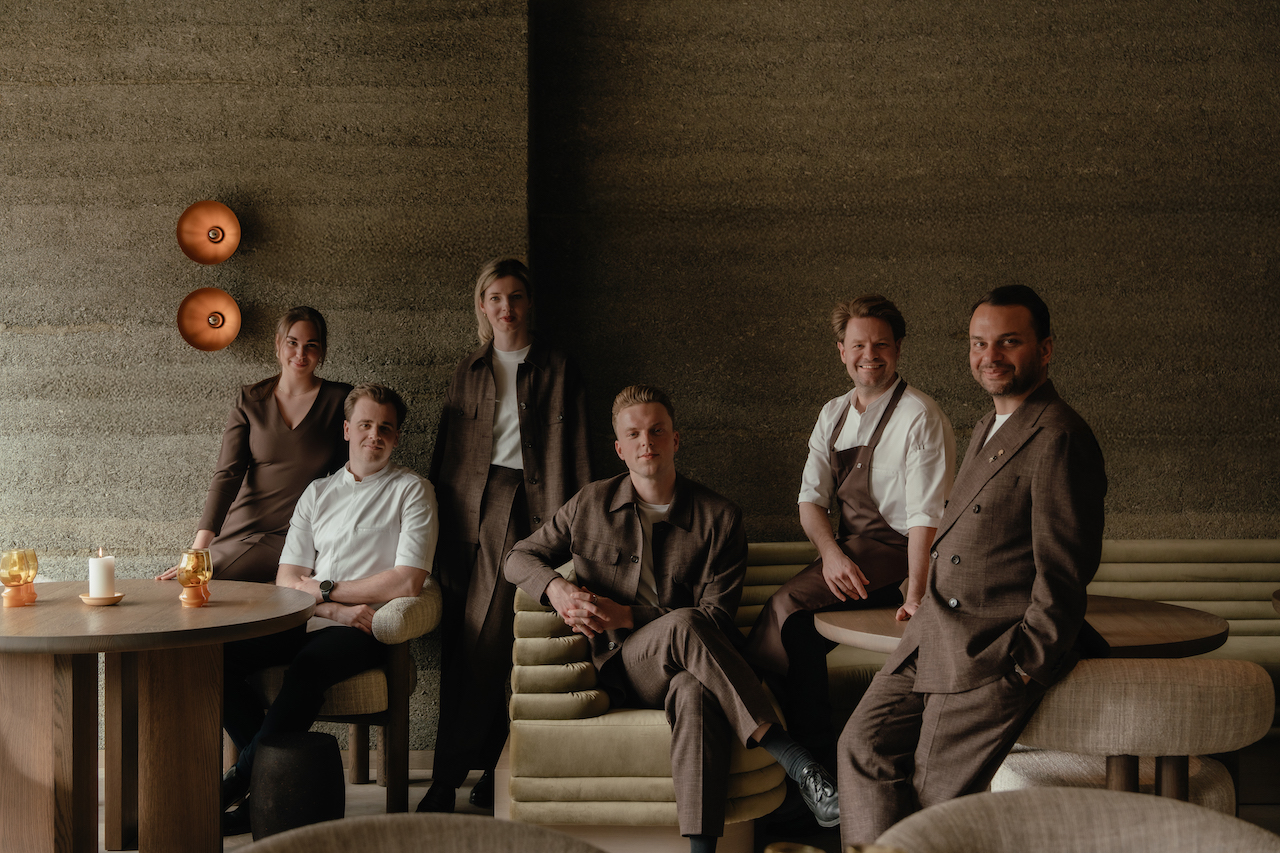
According to Bas, this direction began because he wanted to go beyond tracing where ingredients came from. “Menu planning used to be ordering ingredients and specifying the quality. From vegetables to protein, I wanted to know how they were made.”
A turning point was when he met a local cheesemaker. “He had a herd of 50 Jersey cows with horns and grew food to feed them. The dairy industry always goes for volume, but every step fed into his goal to produce the best milk in order to make the best cheese,” he says.
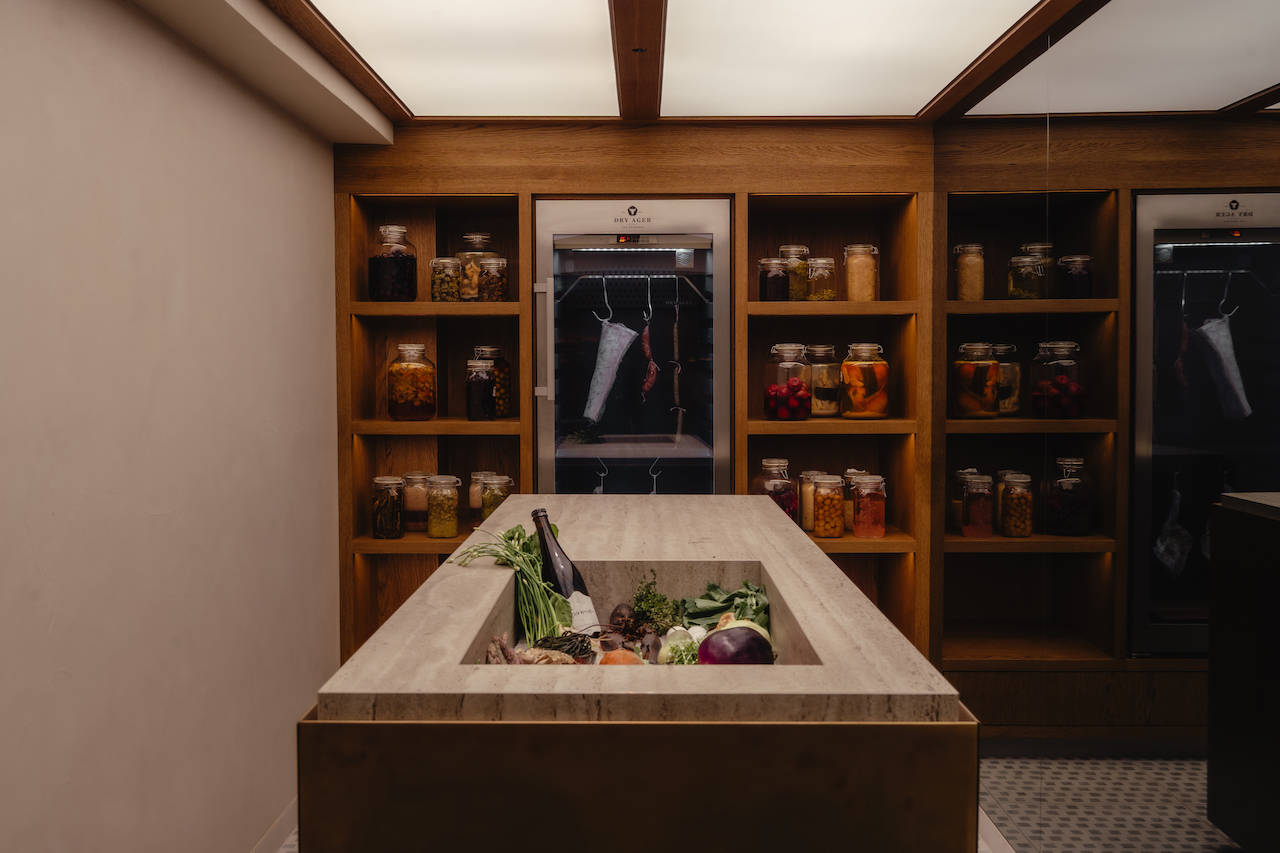
The more he dug, the more he found his calling to shine the spotlight on ingredients rooted in the Netherlands — line-caught fish, organic vegetables and fruits, ethically raised meat. He has an almost fanatical devotion and respect for his partner farmers and producers. “We’re in very close contact. I try to visit them every two or three weeks,” he says. “I know that from next week, we’re going to get a lot of fruits and I want to think of what to do with them today.”
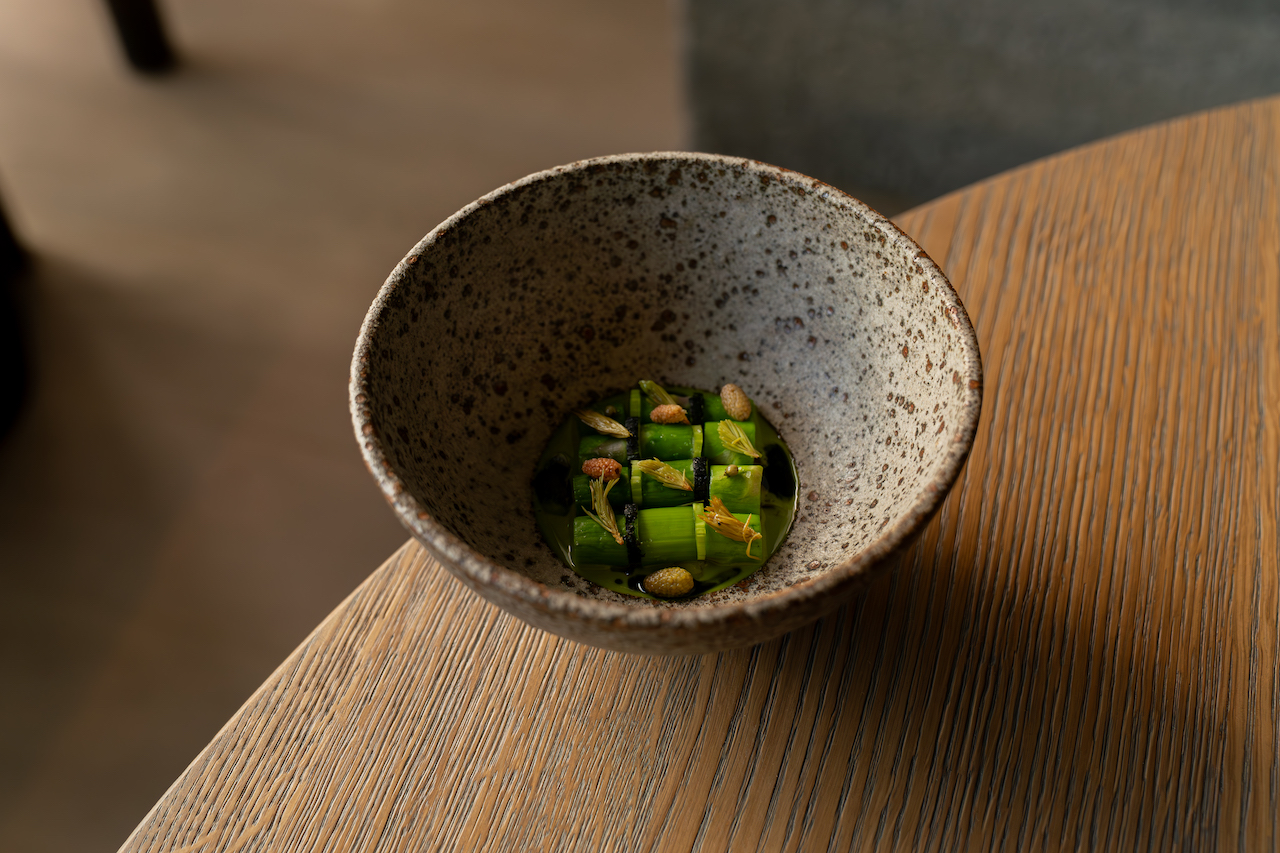
Vermeer shares the same ethos and its head chef has the same sentiment. “The suppliers today occupy an important place in the culinary scene. We work more together as a team — they advise and provide Dutch products in the season — and all this teamwork helped to realise how much we have and can produce in our terroir,” adds Sebastian.
Curious Minds
Unsurprisingly, Bas is a stickler for technique. He doesn’t use butter, and infuses sauces with koji to add creaminess. He makes koji from scratch (most chefs in Japan don’t make their own) and the same goes for soy sauce, which he creates from leftover coffee, as well as miso that’s made from rye bread.
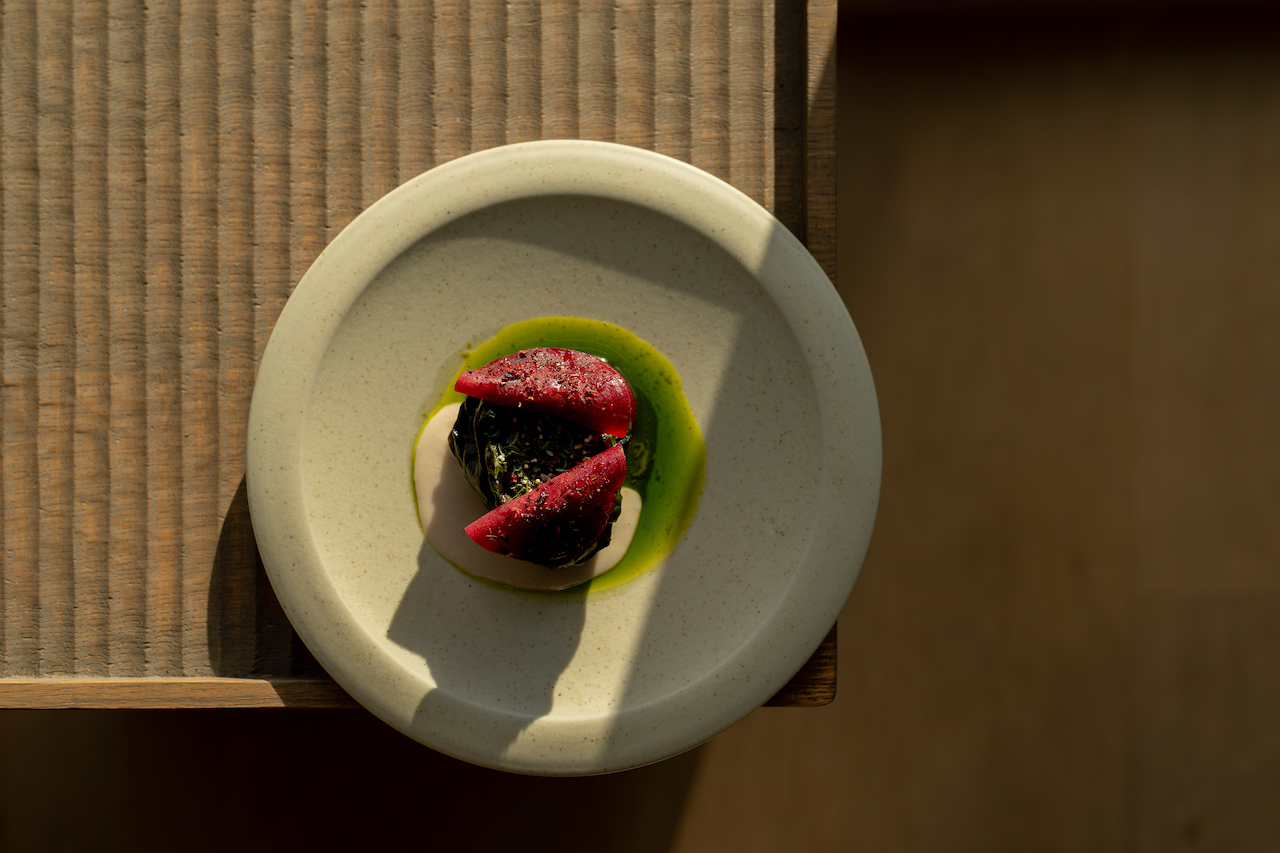
“Why do I go through the trouble? If you make it yourself, you understand how difficult and precious it is. I also think that creation starts from the moment you understand the process,” says Bas.
“Chefs were not as educated about zero waste as they are today. Nowadays, we develop and create new things around leftovers. We also give as much importance to a simple product like a cucumber as meat, and work around the product in its entirety,” shares Sebastian.
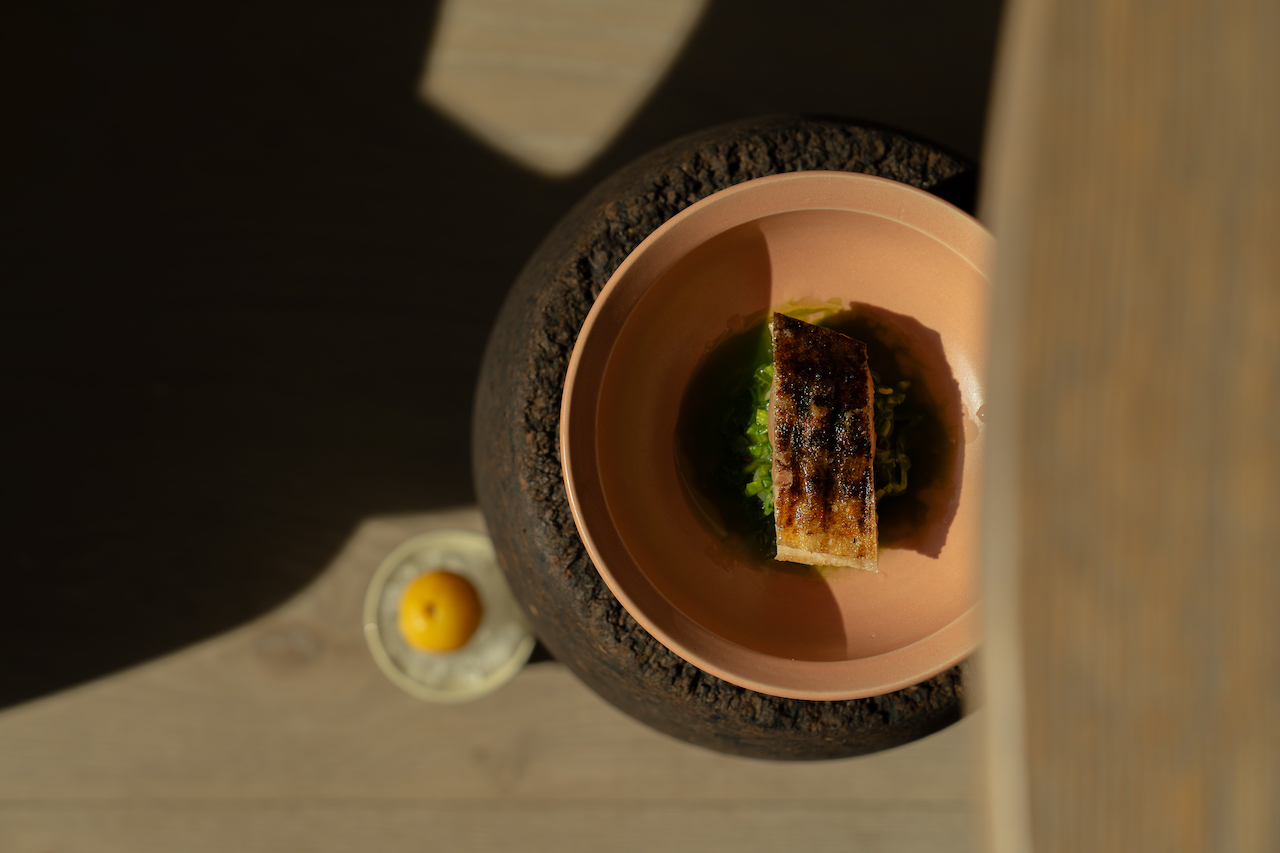
This curiosity and creativity is on full display at Restaurant Flore. Every guest’s first encounter is a room where ingredients are placed on a tableau, from arctic char killed in ikejime technique to lamb wrapped in beef fat and aged for 50 days that it’s almost like an Iberian ham.
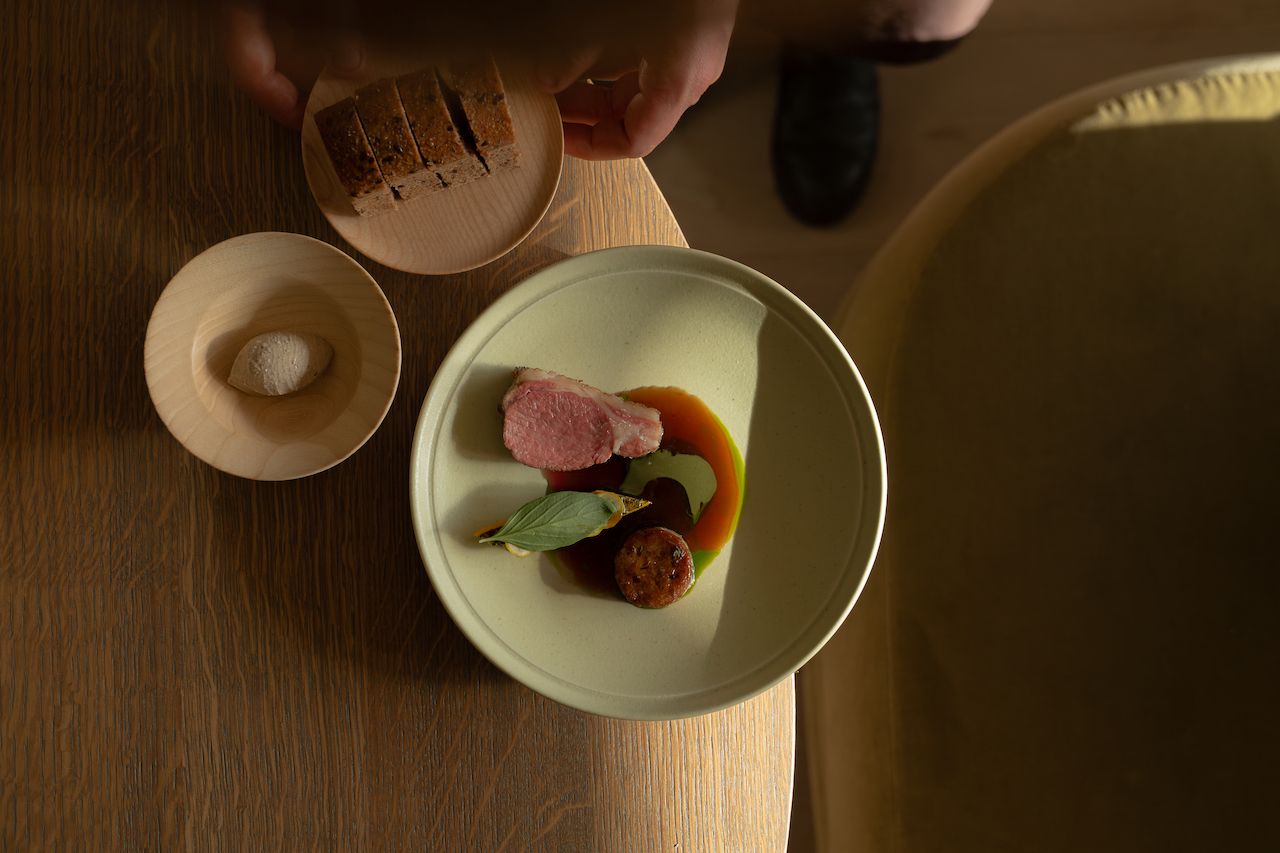
As I dined in the canal-side restaurant and watched the boats float by, I realised I wasn’t only tasting intricately cooked dishes but also tasting the richness of the country itself.
For Bas, who is clearly the leader in the genre, he’s offering an experience that goes beyond serving up delicious food. He’s hoping to inspire other chefs to cook with more vegetables, less waste and embrace what’s truly local.
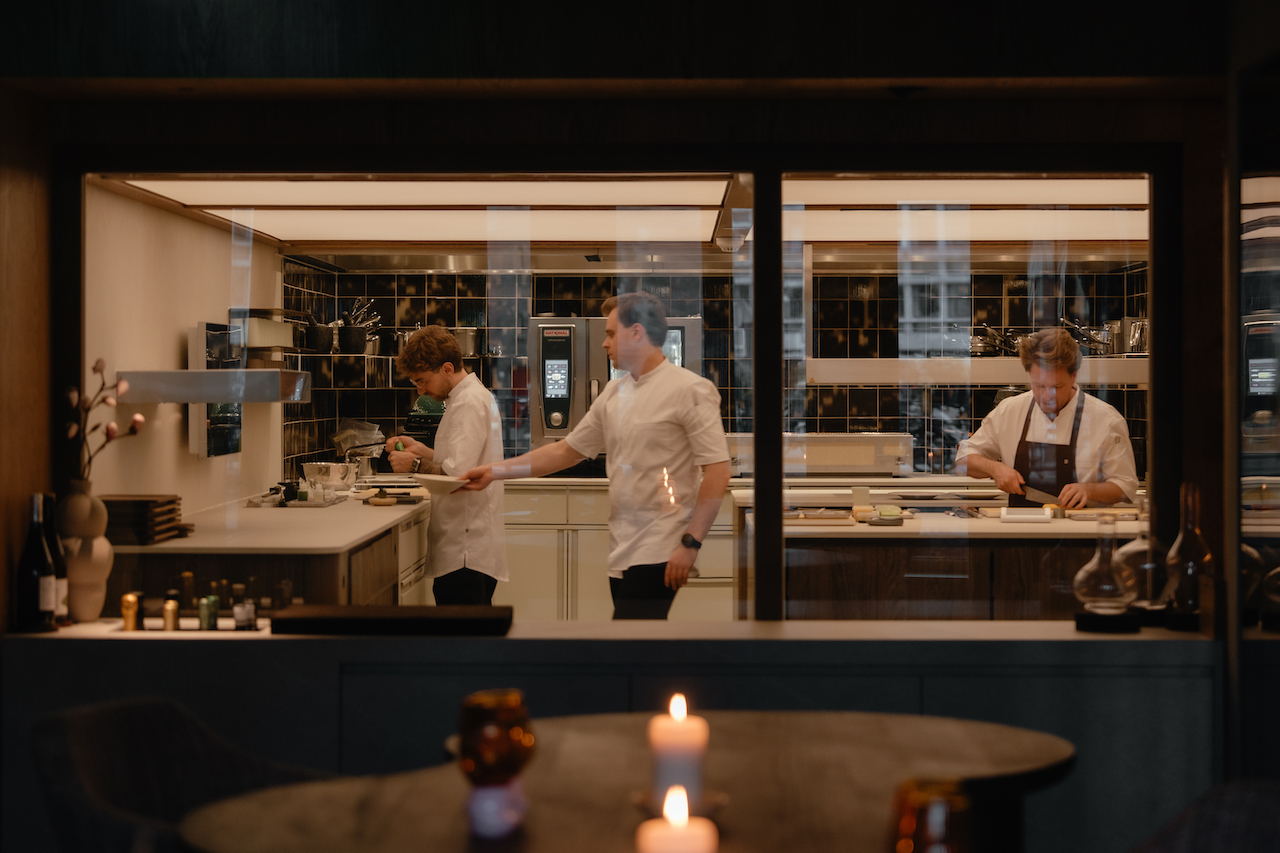
The critics and diners wholeheartedly agree. “In cities like Copenhagen, it feels more orchestrated. Amsterdam is more spontaneous. Altogether, there’s more pride in Dutch ingredients, but also more curiosity about unfamiliar flavours from our own soil. You see it in fermented vegetables, wild herbs, North Sea lobster — suddenly, the country is full of potential,” says Arno.
